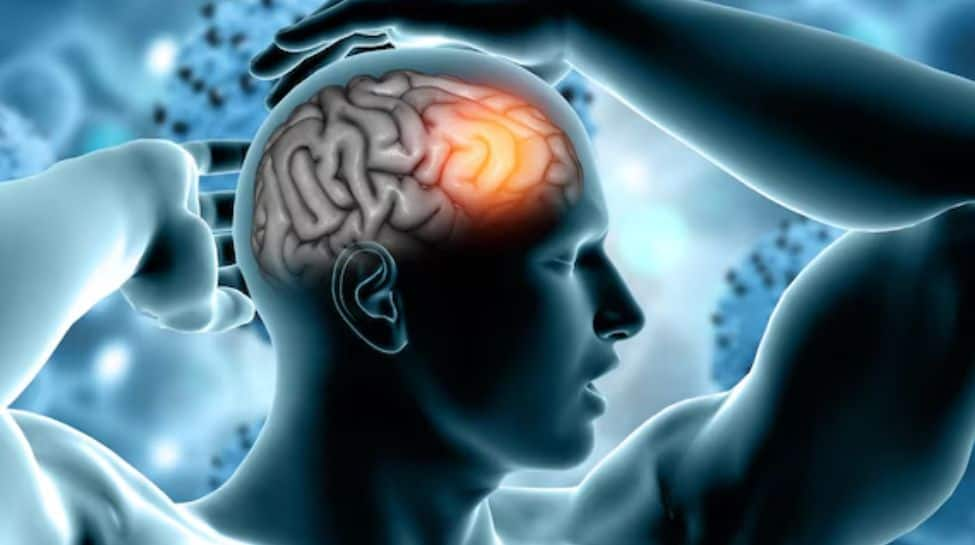Brain Tumors, though relatively rare, can significantly impact individuals and their families. Early detection of the symptoms and indicators is essential for prompt diagnosis and efficient treatment, which greatly enhances results and survival rates. Dr Basant Kumar Misra, Head of Department of Surgery and Section Head - Neurosurgery & GammaKnife with Hinduja Hospital helped us to understand about brain tumors, their signs and symptoms, and much more.
Understanding Brain Tumors
Abnormal cell growths inside the brain are called brain tumors. Brain tumors can be primary or secondary. Secondary tumors are tumors that have spread to the brain from cancer somewhere else in the body. Primary brain tumors are tumors arising primarily in the brain and can be divided into benign and malignant. Malignant tumors are cancerous, develop more quickly, and have the potential to spread to other parts of the brain *than benign tumors, which are normally non-cancerous and grow slowly.
Brain tumors can be of several sorts, such as pituitary adenomas, meningiomas, and gliomas. Gliomas are the most prevalent kind of malignant brain tumor, arising from glial cells. The meninges, the layers of tissue that surround the brain and spinal cord, are the source of meningiomas, which are often benign. Pituitary adenomas are benign tumors that grow in the pituitary gland. However, they may affect hormone production and cause an array of symptoms.
Early Signs and Symptoms of Brain Tumors
Recognising the early signs and symptoms of brain tumors is vital for early intervention. Here are some key symptoms to watch for:
● Headaches: Chronic headaches that worsen during physical exertion or in the morning may be a red flag. These headaches might cause nausea or vomiting, and they might not go away with standard painkillers.
● Seizures: A brain tumor may be indicated by the beginning of new seizures or modifications to pre-existing seizure patterns. The cause of seizures, which can range in severity, is abnormal electrical activity in the brain.
● Cognitive Changes: Disorientation, trouble focusing, or memory issues could be the signs. These alterations may be misinterpreted as signs of ageing or stress and can interfere with day-to-day functioning.
● Personality abnormalities: A brain tumor affecting particular brain regions may be the source of unexplained mood swings, irritation, or behavioural abnormalities.
● Nausea and Vomiting: Unknown causes of nausea, particularly in the morning, may indicate elevated pressure inside the skull.
● Visual Issues: Tumors pressing on the optic nerves or other components of the visual pathway can cause blurred vision, double vision, or loss of peripheral vision.
● Speech Difficulties: A brain tumor affecting the language centres of the brain may be the cause of speech difficulties, understanding language, or finding the proper words.
● Motor Dysfunction: A tumor impacting motor control areas may be the cause of limb weakness, numbness, or lack of coordination.
● Hearing Issues: If a tumor is situated close to the auditory nerves, hearing loss or ringing in the ears may result.
● Balance Problems: Tumors affecting the cerebellum or other balance-related regions can cause difficulty walking, dizziness, or loss of balance.
Importance of Early Detection
Improving treatment outcomes for brain tumors requires early identification. Early diagnosis frequently results in less aggressive and more successful therapy, which may improve the patient's quality of life. A greater variety of therapy choices become available with an early diagnosis, which can also assist to stop the tumor from developing or spreading.
Risk Factors and Prevention
Several risk factors can increase the likelihood of developing a brain tumor:
● Genetic Factors: Certain genetic disorders or a family history of brain tumors may enhance the risk.
● Environmental Factors: High radiation exposure, such as from radiation treatment for prior cancers, can increase the risk.
● Lifestyle Factors: The risk of different cancers can be decreased by maintaining overall health through a balanced diet, frequent exercise, abstaining from tobacco and excessive drinking, and so on. However, particular lifestyle adjustments to prevent brain tumors are not well-defined.
When to See a Doctor?
It's critical to consult a doctor if symptoms become unexpected or chronic. It's crucial to have regular checkups and to keep knowledgeable about one's health. It is imperative to get further assessment from a healthcare expert if any of the symptoms listed above are present.
Diagnostic Tools and Procedures
Several diagnostic tools and procedures are used to identify brain tumors:
● MRI (Magnetic Resonance Imaging): Can identify abnormalities and provide detailed images of the brain.
● CT (Computed Tomography) scans: These aid in tumor identification and brain visualisation.
● Biopsies: These procedures entail taking a small sample of tissue for microscopic analysis to identify the type of tumor.
● Advanced Imaging Techniques: By providing more precise and detailed information such as functional MRI (fMRI) and Positron Emission Tomography (PET) scans, these techniques help with early and accurate diagnosis.
● Definitive Treatment: Brain tumors can be effectively treated with microsurgery, Gamma knife Radiosurgery, endoscopic, and other less invasive procedures if diagnosed early with minimal morbidity
For a brain tumor to be diagnosed and treated effectively promptly, early indications and symptoms must be recognised. Raising awareness and seeking medical attention as soon as possible can help people with the condition to live better and achieve better results. We can help improve brain tumor prevention, diagnosis, and treatment methods, which will ultimately benefit a great number of people and their families, by raising awareness and funding research and educational initiatives.
















